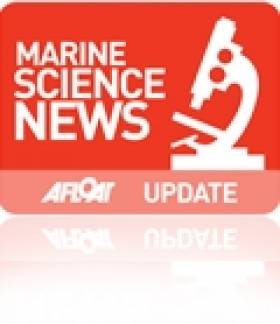Displaying items by tag: Biological Sampling
#MarineScience - Suitable candidates in the marine science field are invited to apply for the accredited continuous professional development module (CPD) titled Applied Marine Biological Sampling and Data Collection.
The module will take place from 30 September to 25 October 2013 and is offered by Galway-Mayo Institute of Technology (GMIT) and the Strategic Marine Alliance for Research and Training (SMART).
Applied Marine Biological Sampling and Data Collection aims to provide attendees with the detailed practical knowledge and skills necessary to design and implement biological sampling and data collection campaigns on marine commercial platforms.
The module is aimed at postgraduate students of marine science and marine industry personnel.
Four days of ship-time sampling and data collection onboard the RV Celtic Voyager and the IWDG's Celtic Mist off Cork and in the Shannon Estuary respectively are supported by three days of intensive laboratory practicals and lectures in GMIT.
- onboard, at practicals and lectures is required from 7-13 October with all other elements accomplished through student-centred distance learning.
Themes addressed include quantitative sampling of fisheries and benthos; surveying and monitoring methodologies for cetaceans and seabirds; tissue sampling and preservation; and oceanographic data collection and sampling.
Completion of the module results in an award of 5 credits at NFQ level 9 under the European Credit Transfer System (ECTS).
The Strategic Marine Alliance for Research and Training (SMART) is a marine science partnership programme designed to further develop capacity in carrying out offshore operations on board research vessels for third level students of marine-related science and technologies.
This strategic collaborative inter-institutional programme is led and funded by Irish Higher Education Institutions (HEIs) and the Marine Institute, and is also supported by the Higher Education Authority (HEA).
The online application forms is available HERE or my e-mailing [email protected]. Further details on the course and its instructors is included in a PDF available to read or download HERE.





























































